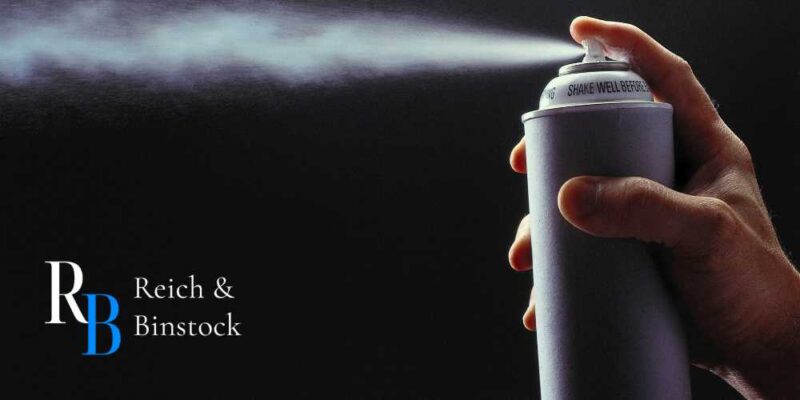SUNSCREEN RECALL
Johnson & Johnson said that it is recalling many of its sunscreen products after some samples were found to contain low levels of benzene, a chemical that can cause cancer with repeated exposure. In fact, nearly 80 suncare products were found to have potentially harmful traces of benzene, according to the Valisure study.
The sunscreen recall includes all can sizes and all levels of sun protection factor, or SPF. The products were distributed nationwide through retailers. According to the CDC, this highly dangerous chemical not only causes leukemia, but can also damage the immune system and prevent the body’s cells from working properly. Thus, the sunscreen recall is a necessary precaution.
Contamination of Neutrogena, Aveeno, and Other Suncare Products
Benzene, in any form, is not utilized in the manufacture of sunscreen products. Rather, the researchers who did the study came to the conclusion that benzene was introduced into specific sunscreens throughout the production process in some unintentional way.
Voluntary Recall from Johnson & Johnson
Following the discovery of benzene, a possibly cancer-causing ingredient, in some samples, Johnson & Johnson said on Wednesday that it is recalling most of its Neutrogena and Aveeno spray sunscreens from U.S. retailers.
Five of J&J’s six Neutrogena and Aveeno spray sunscreens should be discontinued and discarded, according to the company. Distributors and merchants are also being told to cease distributing the goods, according to the corporation.
An online pharmacy discovered excessive amounts of benzene in 78 sunscreens and other suncare items, prompting the recall. Valisure LLC, a drugstore, petitioned the FDA to have the items removed, including several that were recalled by J&J. Zantac, a popular heartburn medication, and Metformin, a diabetic medication, were both recalled as a result of the online pharmacy’s previous testing.
J&J claims that it does not utilize benzene in the production of the spray sunscreens and is looking into the source of the contamination.
Products Contaminated with Benzene
Not all of Johnson & Johnson’s sunscreens are affected by the sunscreen recall. It only applies to Neutrogena Beach Defense, Neutrogena Cool Dry Sport, Neutrogena Invisible Daily, Neutrogena Ultra Sheer, and Aveeno Protect + Refresh aerosol sunscreens marketed under the Neutrogena and Aveeno brands.
According to J&J, the business only sells one other spray sunscreen product, Neutrogena Wet Skin, which is unaffected.
What Is Benzene?
Benzene is a flammable, colorless liquid with a pleasant odor. When exposed to air, it soon evaporates. Natural processes such as volcanoes and forest fires produce benzene, however human activities are responsible for the majority of benzene exposure.
In the United States, benzene is one of the top 20 most often utilized compounds. It is mostly utilized as a raw material for other chemicals such as plastics, lubricants, rubbers, dyes, detergents, pharmaceuticals, and insecticides. It was once widely employed as an industrial solvent (a chemical capable of dissolving or extracting other compounds) as a gasoline additive, but these applications have declined dramatically in recent decades.
Benzene is a naturally occurring component of crude oil, gasoline (and hence motor vehicle exhaust), and cigarette smoke.
Why Is Benzene Harmful?
Based on data from human and laboratory animal research, benzene is known to cause cancer. The study of benzene and cancer has mostly focused on leukemia and other blood malignancies.
Long-term exposure to benzene has a substantial effect on the blood. (Long-term exposure implies a year or more of exposure.) Benzene harms the bone marrow and can cause a drop in red blood cells, resulting in anemia. It can also induce excessive bleeding and have an impact on the immune system, making infection more likely.
Some women who inhaled high doses of benzene for several months experienced irregular menstrual cycles and ovaries that shrank in size. It’s unclear if benzene affects the developing child in pregnant women or men’s fertility.
Another notable and recent case involving benzene is the contamination of the Camp Lejeune water in North Carolina. Among 70+ other harmful chemicals, benzene was found in significant quantities in the drinking water.
Side Effects and Complications
Side effects of benzene exposure largely depend on the level of exposure. At small levels of exposure, individuals can experience the following effects.
- Drowsiness
- Dizziness
- Rapid or irregular heartbeat
- Headaches
- Tremors
- Confusion
- Unconsciousness
At high levels of exposure and prolonged exposure, users risk cancer development, and in some cases, death.
Leukemia and Benzene
Acute Myelogenous Leukemia (AML) is a kind of bone marrow and blood cancer that can be induced by benzene exposure. Acute myeloid leukemia, acute myeloblastic leukemia, acute granulocytic leukemia, and acute nonlymphocytic leukemia are all names for acute myelogenous leukemia. Adult-onset acute leukemia is the most prevalent form of acute leukemia. Myeloid cells, which are white blood cells in the bone marrow, are attacked by AML. The cells are unable to develop and are therefore unable to protect themselves against infection. The harmful cells crowd out the healthy ones as they multiply.
The most common cause of AML is exposure to carcinogens like benzene. Generally, those exposed to benzene inhale or ingest the harmful substance, though it is also absorbed through the skin.
Symptoms of AML in its early stages may resemble those of the flu or other common illnesses. Fever, tiredness, weight loss, pale complexion, shortness of breath, and bone pain are all common symptoms. Bruising easily, recurrent infections, and unusual bleeding, especially in the nose and gums, are some of the other indications and symptoms. If you see any odd signs or symptoms, visit a doctor for a proper diagnosis.
Types of Leukemia Linked to Benzene
- Leukemia
- Acute myeloid leukemia
- Acute lymphocytic leukemia
- Chronic lymphocytic leukemia
- Multiple myeloma
- Non-Hodgkin lymphoma
What to Do Now
If you’re wondering where to go after the sunscreen recall, you’re not alone. The first step is to monitor your own health, as well as the health of your family members, if you have used one of the listed products. Should you experience abnormal symptoms, seek medical attention right away. Contact a toxic torts lawyer for more information on how to proceed with your case.
Benzene Sunscreen Lawsuit Eligibility
The next step is to determine whether or not you qualify for damages in a lawsuit. Those who qualify have used one of the suncare products affected by the sunscreen recall, and then received a diagnosis for one of the related diseases. We examine the following criteria while determining eligibility.
Previously Used One of the Following Products:
- Neutrogena Ultra-Sheer Weightless SPF 100+
- Sun Bum Cool Down Gel
- Neutrogena Ultra-Sheer Weightless SPF 70
- Neutrogena Beach Defense Oil-Free Body Spray, SPF 100
- Neutrogena Beach Defense Body Spray, SPF 50
- CVS Health After-Sun Aloe Vera Soothing Spray
- Fruit of the Earth Aloe Vera Gel
- Neutrogena Invisible Daily Defense Body Sunscreen Broad Spectrum, SPF 60+
Other products listed in the Valisure sunscreen study and the sunscreen recall.
Received a Diagnosis for One of the Following
- Leukemia
- Acute myeloid leukemia
- Acute lymphocytic leukemia
- Chronic lymphocytic leukemia
- Multiple myeloma
- Non-Hodgkin lymphoma
- Aplastic anemia
- Multiple myeloma
Contact Reich & Binstock Today
At Reich & Binstock, we have extensive experience representing clients in defective product lawsuits across both the State of Texas and the nation. It’s extremely important to ensure that each and every victim of the nearly 80 contaminated suncare products receive the compensation they deserve after the sunscreen recall. If you or a loved one suffered adverse health effects or received a cancer diagnosis after using a contaminated sunscreen, we’re here for you. To learn more about what we can do for you, please fill out our dedicated intake form or give us a call at 713-622-7271 today.
If you or a loved one used one of the sunscreens or suncare products listed by Valisure and then received a diagnosis of one of the following ailments, please click the button below to continue to our contract page.
- Leukemia
- Acute myeloid leukemia
- Acute lymphocytic leukemia
- Chronic lymphocytic leukemia
- Multiple myeloma
- Non-Hodgkin lymphoma
- Aplastic anemia
- Multiple myeloma
There is never a fee unless we recover on your behalf.
Additionally, clients are not obligated to pay expenses if a recovery is not made.



















